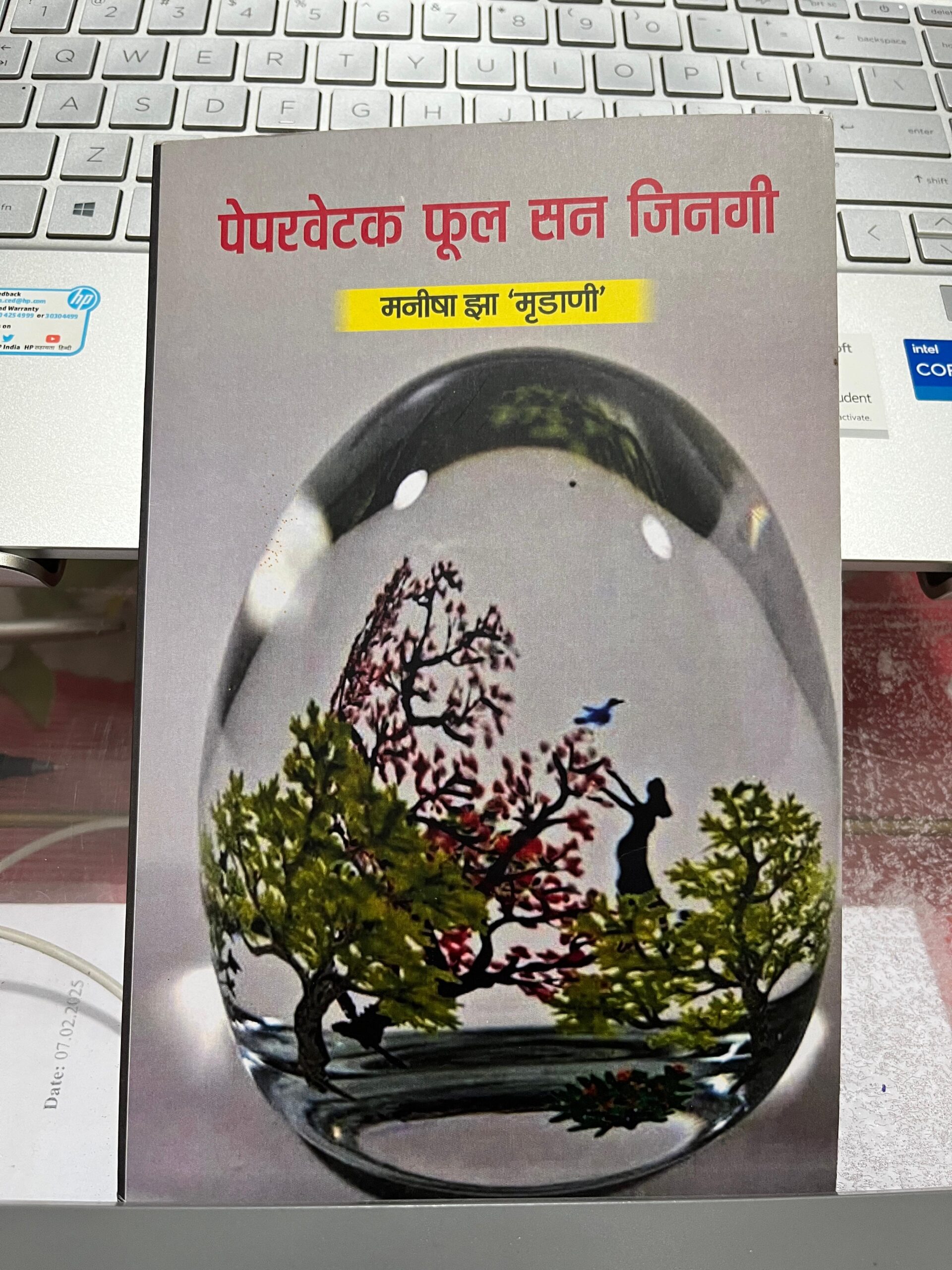
A few days ago, I received a message on Facebook from someone requesting my address, expressing a desire to send me their newly published book, their very first publication, an anthology of poems. Graciously, I shared my address. Over the years, many writers have sent me their books, and I remain sincerely grateful for each of them. However, I must admit with a sense of regret that very few of these books, particularly those written in Maithili, prove to be genuinely worth reading. A concerning trend has emerged where individuals seem to be publishing books without fully understanding the purpose of writing or the art behind it. This unchecked enthusiasm for publication often leads to a flood of substandard content — a situation that warrants reflection.
After about a week, I received a copy of “पेपरवेटक फूल सन जिनगी”, authored by Manisha Jha Mridani. I must confess, I was unfamiliar with her, neither had I encountered her poetry before, nor did I know her personally. So initially, I set the book aside, intending to read it at a later time.
This past weekend, I finally opened the book, curious to discover the voice of this emerging poetess. To my pleasant surprise, I found myself drawn into her world. Manisha Jha possesses a keen eye for contemporary issues, particularly those rooted in the intimate, often unspoken dynamics within our homes, the private spaces often shielded from public discourse. She does not shy away from complex, emotionally charged subjects, which is commendable for a poet at the beginning of her literary journey.
Although one cannot expect mastery of poetic craft from a debut author, her work exudes a certain freshness and sincerity. There’s a palpable sense that she has something urgent to express — something that goes beyond form and meter. Her poems reflect a blend of traditional stylistic elements and a modern sensibility, resulting in a unique voice that is still evolving. A notable example of her thematic boldness is found in the poem “Deh Vyapar…”, where she attempts to articulate the harrowing realities of body commodification with striking clarity and conviction.
However, one significant drawback in her writing is her tendency toward verbosity. There are too many words where fewer would suffice. Poetry demands precision, every word must earn its place. Excessive and unnecessary verbiage not only dilutes the emotional impact but can also make the reading experience tedious. A poem must breathe; it must allow space for reflection, for silence, and for resonance. This is an area where the poet must exercise restraint and learn the fine balance between expression and economy of language.
In conclusion, Manisha Jha Mridani shows considerable promise as a new voice in Maithili poetry. She clearly possesses sensitivity, courage, and a distinct perspective; qualities essential for a poet. With deeper engagement in the literary heritage of Maithili, and a conscious effort to refine her craft, she has the potential to make a meaningful contribution to the field.
I extend my heartfelt wishes for her continued growth and success.
